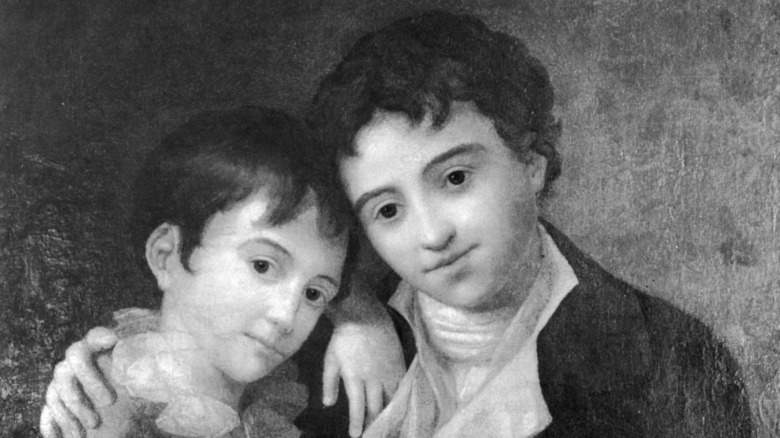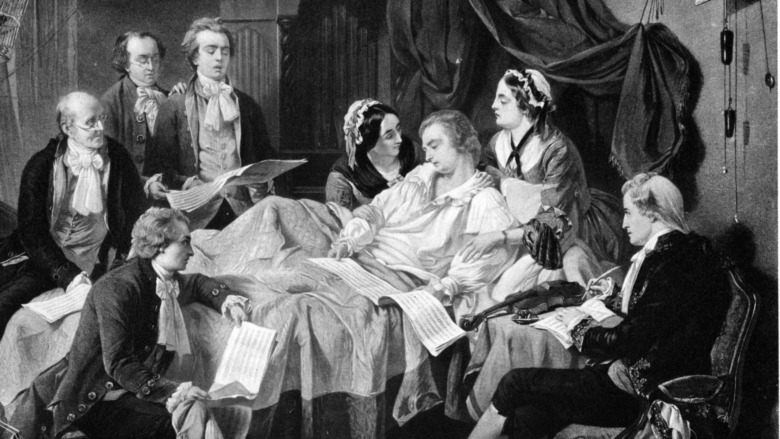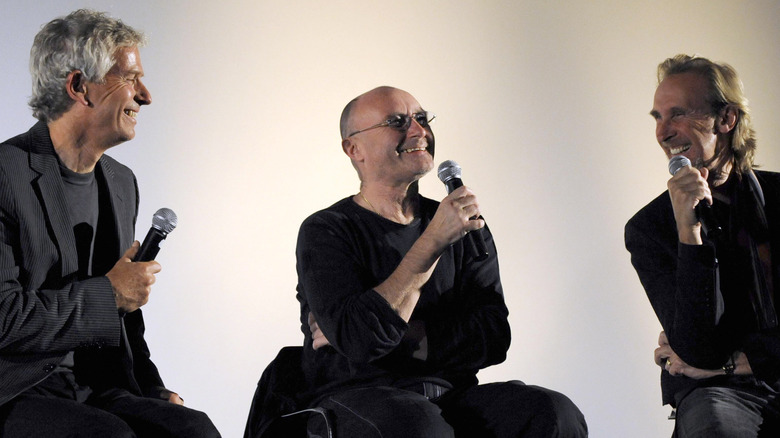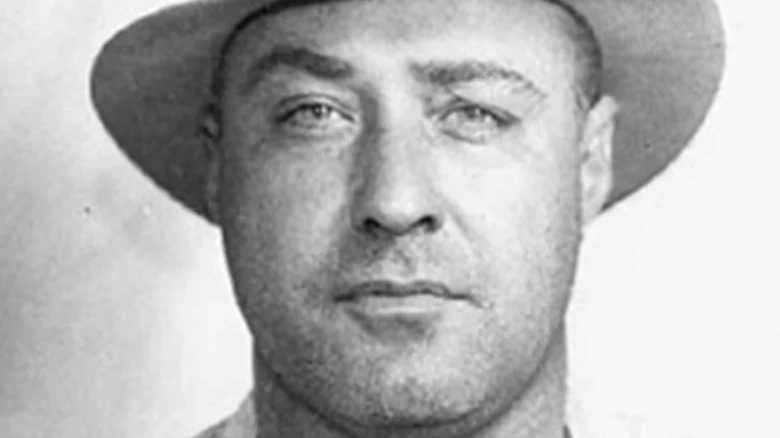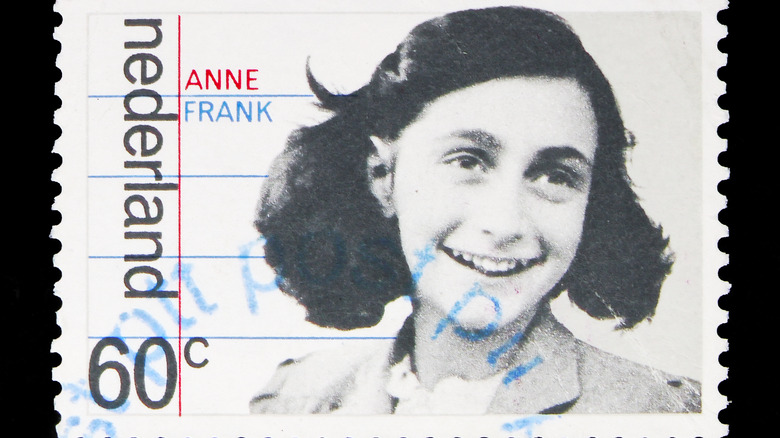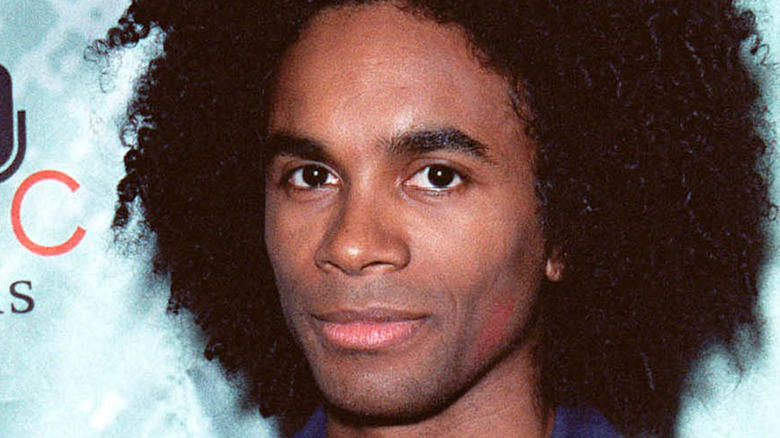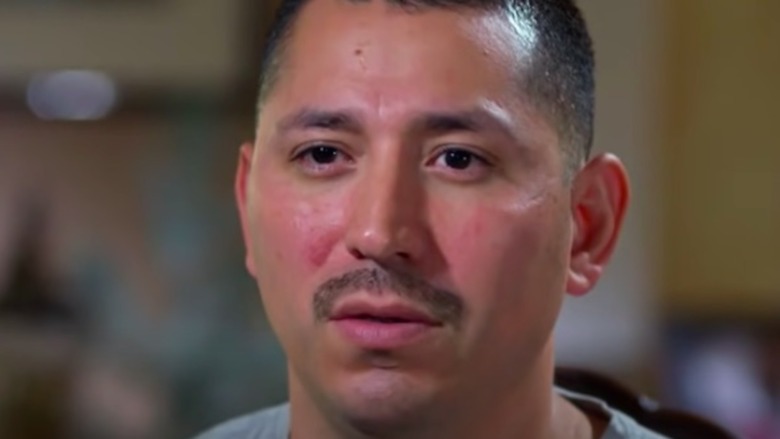
The Sad Fates Of Mozart’s Children
While composer Wolfgang Amadeus Mozart lived only to 35 years old, he left a rich legacy behind him. He wrote more than 600 works, according to Opera Philadelphia, including symphonies (“Symphony No. 41, Jupiter”), chamber music (“Quintet in E flat Major for Piano, Oboe, Clarinet, Horn and Bassoon”), operas (“The Marriage of Figaro” and “The Magic Flute”) and choral music (“Requiem Mass”). A child prodigy, he began playing on the harpsichord at three, and by five, Mozart was composing, according to Britannica. But he would have more success in music than building a flourishing family.
By 13, he had toured most of Europe and was composing symphonies and an operetta, “Bastien and Bastieime.” The New Yorker said he was advertised in London as “the most amazing Genius, that has appeared in any Age,” and his father, Leopold Mozart, called him “the miracle whom God allowed to be born in Salzburg.”
Leopold, a violinist, also found success in the musical field and published “A Treatise on the Fundamental Principles of Violin Playing,” also known as “Violinschule,” an influential text of the time that was translated into several languages, according to Strings Magazine. According to Maynard Solomon’s book “Mozart: A Life,” Leopold saw his offspring as “his personal economic resource and insurance against the calamities of old age,” and was determined to keep Wolfgang touring and composing.
Mozart's family tragedy
Leopold’s hold on Wolfgang continued even as his son became an adult. When Wolfgang courted an opera singer named Aloysia Weber at age 21, his father objected and sent him to Paris so he couldn’t pursue the affair. Mozart ended up wedding her younger sister, Constanze, also a musician, on August 4, 1782. Their first child, Raimund Leopold, was born 10 months later, but died within two months from “Gedärmfries,” a fever and infection, according to Interlude.
This began a terrible pattern of the couple losing children during pregnancy or soon after birth. Constanze gave birth to five more babies: Karl Thomas, Johann Thomas Leopold, Theresia Constanzia, Anna Maria, and Franz Xaver, with only two, Karl and Franz, growing into adulthood. Author Stephen Hicks has written about infant mortality rate and notes that during the 18th century, infant deaths reached more than 50%. Mozart’s parents also suffered from such loss, with five babies dying.
Like many talented musicians, Wolfgang died leaving little money behind for his family. Louis Carp wrote in “Mozart: His Tragic Life and His Controversial Death” that when it came to money, he was “casual to a fault, indecisive, careless, and extravagant, he did not seem to face reality, and he lacked adroitness in business and financial matters.”
While Wolfgang liked to live extravagantly, wearing the most luxurious fashions, sending his sons (pictured above) to private school, and giving expensive parties, his lack of fortune also had to do with how the music industry changed.
The death of Mozart and its aftermath
As he aged, Mozart found fewer composing commissions and performance opportunities. As a freelancer, according to Biography, even when Mozart worked sometimes he lost money, since he often needed to subsidize the travel expenses.
After Mozart died, Constanze, then 29, paid all the family’s debts. She had little money, said Encyclopedia.com, so she and her two sons lived with her family. But friends and others helped her: She received a small annual pension form the Holy Roman Emperor Leopold II, a family friend financed her sons’ education, and her husband’s friends and fans organized a benefit concert.
She met Georg Nikolaus von Nissen, a Danish diplomat, in 1797. He helped her organize Mozart’s remaining work, and she started selling some of these to Johann Andre of Offenbach, a noted publisher her husband once knew. She married Nissen in June 1809, reported the The Guardian, and together they began work on a biography of Mozart.
Her sons with Mozart — Karl, a civil servant, who lived in Italy, and Franz, a composer and pianist — remained close to their mother until her death on March 6, 1842, at the age of 80. Neither son had children, and Mozart’s direct bloodline ended when his older surviving son, Karl, died on October 31, 1858, at 74. Franz died July 29, 1844.

The Horrible Medieval Weapon That Was Used To Torture Wives

What Is The Milkdromeda Galaxy?
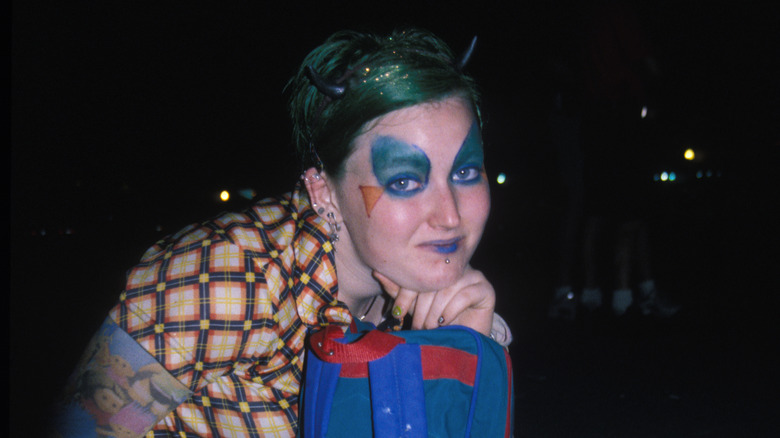
How Much Money Did Woodstock '99 Cost To Put On?

The Truth About Linda Kolkena And Dan Broderick's Relationship

The Surprising Thing These Four Planets Have In Common

The Truth About The Pope's Plane
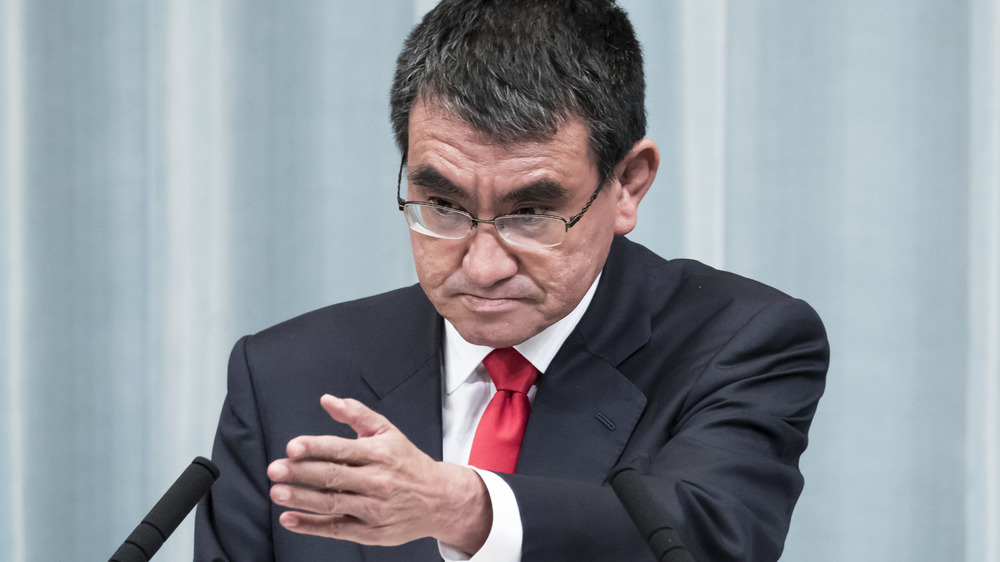
The Truth About The Japanese Prime Minister's War Against Fax Machines
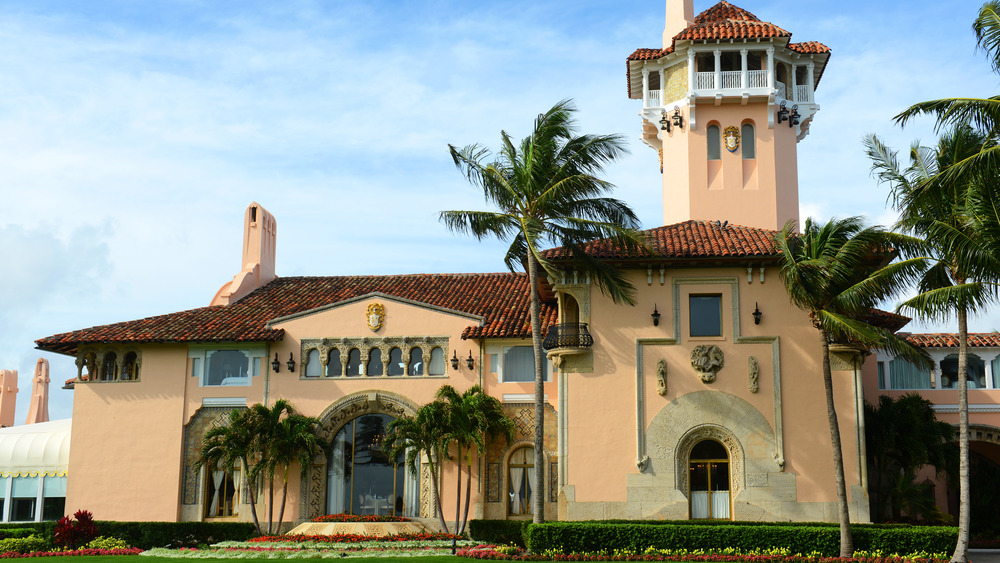
The Untold Truth Of Mar-A-Lago

The Reason The Who Replaced Kenney Jones

The Concerning Truth About Moon Shoes
